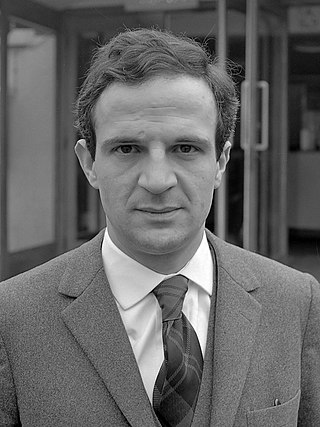
François Roland Truffaut was a French filmmaker, actor, and critic. He is widely regarded as one of the founders of the French New Wave. With a career of more than 25 years, he is an icon of the French film industry.

Raymond Roman Thierry Polański is a French and Polish film director, producer, screenwriter, and actor. He is the recipient of numerous accolades, including an Academy Award, two British Academy Film Awards, ten César Awards, two Golden Globe Awards, as well as the Golden Bear and a Palme d'Or.

Juliette Binoche is a French actress. She has appeared in more than 60 films, particularly in French and English languages, and has been the recipient of numerous accolades, including an Academy Award, a British Academy Film Award and a César Award.

Claude Henri Jean Chabrol was a French film director and a member of the French New Wave group of filmmakers who first came to prominence at the end of the 1950s. Like his colleagues and contemporaries Jean-Luc Godard, François Truffaut, Éric Rohmer and Jacques Rivette, Chabrol was a critic for the influential film magazine Cahiers du cinéma before beginning his career as a film maker.
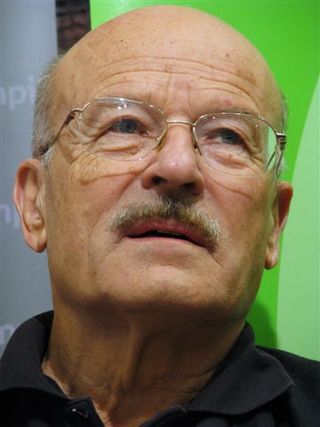
Volker Schlöndorff is a German film director, screenwriter and producer who has worked in Germany, France and the United States. He was a prominent member of the New German Cinema of the late 1960s and early 1970s.
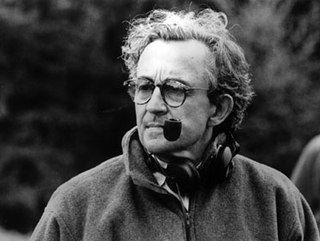
Louis Marie Malle was a French film director, screenwriter, and producer who worked in both French cinema and Hollywood. Described as "eclectic" and "a filmmaker difficult to pin down", Malle made documentaries, romances, period dramas, and thrillers. He often depicted provocative or controversial subject matter.
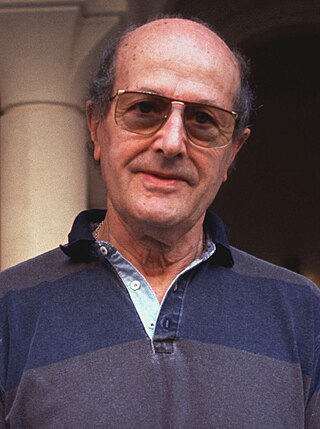
Manoel Cândido Pinto de Oliveira was a Portuguese film director and screenwriter born in Cedofeita, Porto. He first began making films in 1927, when he and some friends attempted to make a film about World War I. In 1931, he completed his first film Douro, Faina Fluvial, a documentary about his home city Porto made in the city-symphony genre. He made his feature film debut in 1942 with Aniki-Bóbó and continued to make shorts and documentaries for the next 30 years, gaining a minimal amount of recognition without being considered a major world film director.
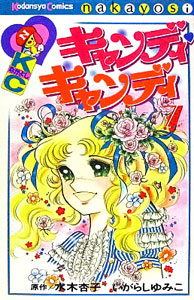
Candy Candy is a Japanese series created by Japanese writer Keiko Nagita under the pen name Kyoko Mizuki. The main character, Candice "Candy" White Ardley, is a blonde girl with freckles, large emerald green eyes and long hair, worn in pigtails with bows. Candy Candy first appeared as a manga in April 1975, written by Mizuki and illustrated by manga artist Yumiko Igarashi, a collaboration which was put together by the Japanese magazine Nakayoshi who were interested in recreating a "masterpiece" manga in the same vein as Heidi, Anne of Green Gables and other famous classic titles of literature read predominantly by young girls. The manga series ran for four years and won the 1st Kodansha Manga Award for shōjo in 1977. The story was adapted into an anime series by Toei Animation. There are also three animated short films.
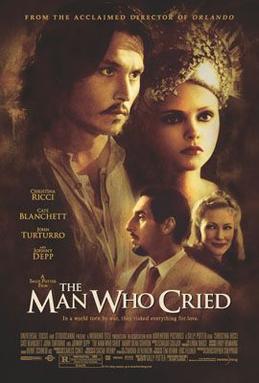
The Man Who Cried is a 2000 drama film written and directed by Sally Potter, and starring Christina Ricci, Cate Blanchett, Johnny Depp, Harry Dean Stanton and John Turturro. The film tells the story of a young Jewish girl who, after being separated from her father in Soviet Russia, grows up in England and moves to Paris as a young adult, shortly before the beginning of World War II. It is the last film worked on by the French cinematographer Sacha Vierny.
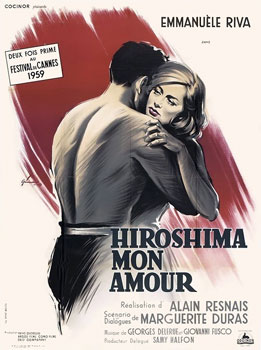
Hiroshima mon amour, is a 1959 romantic drama film directed by French director Alain Resnais and written by French author Marguerite Duras.

Souleymane Cissé is a Malian film director, regarded as one of the first generation of African filmmakers. He has been called "Africa's greatest living filmmaker" while his film Yeelen has been called "conceivably the greatest African film ever made."

Francis Albert Lai was a French composer, noted for his film scores. He won the 1970 Oscar for Best Music, Original Score and the Golden Globe Award for Best Original Score for the film Love Story. The soundtrack album went to No. 2 in the Billboard album charts and the film's theme, "Where Do I Begin", was a hit single for Andy Williams.

André Téchiné is a French screenwriter and film director. He has a long and distinguished career that places him among the most accomplished post-New Wave French film directors.
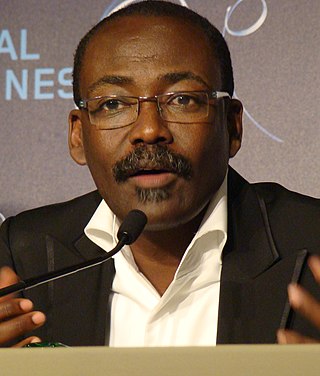
Mahamat-Saleh Haroun was born in 1961 in Abéché, Chad. He is a film director from Chad. He left Chad during the civil wars of the 1980s. Haroun is the first Chadian full-length film director. He both writes and directs his films. Though he has lived in France since 1982, most of his films have been set in and made in Chad.
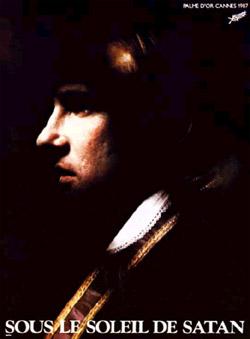
Under the Sun of Satan is a 1987 French drama film directed by Maurice Pialat, starring Gérard Depardieu, Sandrine Bonnaire and Pialat himself. It is based on the 1926 novel of the same name by Georges Bernanos. Set in the countryside of northern France in the 1920s, it tells the story of a tormented young priest who has spiritual gifts but agonises over what good he can do in a world under the grip of evil. The film won the Palme d'Or at the 1987 Cannes Film Festival.

Valentín is a 2002 Argentine-French-Italian drama film written and directed by Alejandro Agresti. The film features Rodrigo Noya as Valentín and Carmen Maura as the grandmother. Director Alejandro Agresti also stars as Valentín's father.
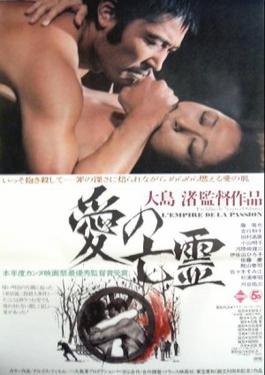
Empire of Passion is a 1978 French-Japanese film produced, written and directed by Nagisa Ōshima, based on a novel by Itoko Nakamura. The film was a co-production between Oshima Prods. and Argos Films.

The 31st Cannes Film Festival was held from 16 to 30 May 1978. The Palme d'Or went to The Tree of Wooden Clogs by Ermanno Olmi. This festival saw the introduction of a new non-competitive section, 'Un Certain Regard', which replaces 'Les Yeux Fertiles' (1975-1977), 'L'Air du temps' and 'Le Passé composé'.
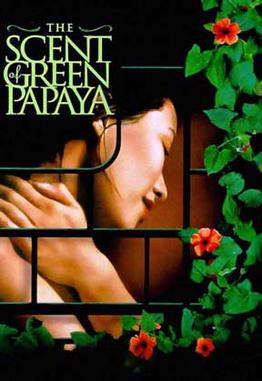
The Scent of Green Papaya is a 1993 Vietnamese-language French drama film directed by Vietnamese-French director Tran Anh Hung, and starring Tran Nu Yên-Khê, Man San Lu, and Thi Loc Truong.
Trances is a 1981 documentary film about the influential Moroccan avant-pop band Nass El Ghiwane. It was shot, written, and directed by Ahmed El Maânouni.



















